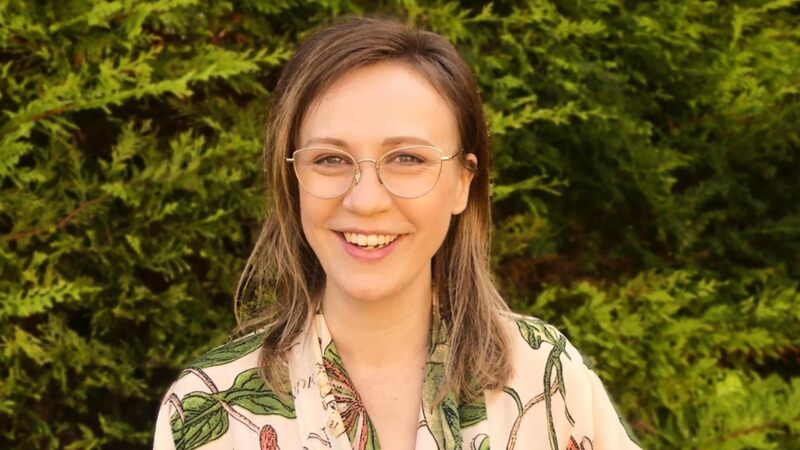You are viewing your 1 free article this month. Login to read more articles.
World Poetry Day: social media drives 16% sales increase
Poetry sales have continued to grow in 2017 ahead of World Poetry Day today (21st March), with writers driving interest on social media one possible reason for the genre's current boom.
Last year marked the best on record in both volume and value sales for the category through Nielsen, with 1.078 million poetry books selling for £9.9m. However, the BookScan statistics show 2017 is so far looking even better, with sales already up 16% in volume to 86,664 copies in the first quarter and 10.9% up in value to £787,800.
The uplift in sales of the poetry sector, first reported last autumn, has been attributed to a host of factors, including increased diversity among poets and young people discovering works through social media.
Susannah Herbert, executive director at the Forward Arts Foundation and National Poetry Day director, pointed out that eight of the 10 bestselling contemporary poetry books of 2016 authored by a single person were by women, which she said was helping to grow young female audiences.
Sales for the year to date owe specific thanks to Toronto-based Instapoet poet Rupi Kaur and her originally self-published collection Milk & Honey (Andrews McMeel Publishing), according to Nielsen. It has sold 17,072 copies this year in total (up to 10th March) and is yet to sell fewer than a thousand copies per week in 2017. Powered by an army of social media fans (113k followers on Twitter and 1m on Instagram), sales of the 2015-published anthology of poems, centred on themes of violence, abuse and femininity, received a spike in the aftermath of International Women's Day, when Kaur's prose featured on placards during the march. During the week directly after the event, she sold 2,083 copies in the UK in one week, the book's highest since Christmas.
"A year or so ago, Private Eye plaintively asked 'Could the male poetry star be heading for extinction?' after the three Forward Prizes went to three women. Nielsen's figures seem to suggest the question isn’t as silly as it seemed," commented Herbert. "There certainly seems to be a young female readership that’s turning to poetry to articulate its hopes, fears and desires."
Emma Smith, commissioning editor at Trapeze, who recently signed Instapoet Nikita Gill, agreed. "I think people (young women in particular) are looking for genuine and empowering messages to engage with, especially online; readers are searching for words that really mean something, that are representative of diverse voices and inspire positive change. Poetry is the perfect medium for sharing content that is impactful, beautiful and important," she said.
Social media is already having an impact on readership and will only help the poetry genre become more successful by acting as a "gateway" for new audiences, said Herbert.
"Social media is very clearly driving sales - Rupi Kaur and Nayyirah Waheed are huge on Instagram and seem to appeal particularly strongly to young BAME women, as does Warsan Shire," she said.
"Shire’s rise is a game-changer because she has demonstrated that you don’t need to publish a full poetry collection with a mainstream publisher to be a bestseller in this sector. She’s published only a pamphlet with a very small publisher - and poetry pamphlet sales generally hover around the very low hundreds…partly because bookshops don’t stock them. But Shire’s collaboration with Beyonce on 'Lemonade' has brought her name to an entirely new audience, for whom she represents a gateway into poetry."
"Conventional publishing is really missing a trick," she added. "The old publishing model for poetry, which stakes all on the noble endeavour of creating a single-author book, hasn’t been quick to notice that new audiences respond to a poem, or line of poetry, rather than to a whole collection. Social media lends itself to anyone who has a voice and can pack significance into few words, so poetry thrives online: the millions who enjoy sharing short poems on Twitter and Instagram are potentially important audiences for poets and poetry publishers.
"Poetry is on the move again: the publishers and booksellers are still obviously vital but - with a few notable exceptions - they have been quite slow to clock how the landscape has changed. If they would just invest in training their poets up in the use of Instagram and YouTube the market would grow even faster."
However Tom Chivers, director of publisher Penned in the Margins, whose sales were up 40% last year, said he was "not wildly impressed by the quality" of the poetry on Instagram. The company does put an emphasis on performance events, though. "Our poet Luke Wright is our bestselling poet, and that’s because he’s constantly touring – he does three gigs a week," Chivers said.
Michael Schmidt, managing and editorial director of Carcanet Press, said while social media was undoubtedly amplifying word-of-mouth successes, the reasons for the sector's strong performance were the "same old" in combination with the fact more poetry is being published.
"The poetry market is rather erratic just now with some books selling extremely well," said Schmidt. "The reasons are the same old same old: poets who are wonderful public readers always sell well; poets who win major awards sell well; and sometimes poets who just happen to be very good sell well thanks to word of mouth amplified by social media. New poets (first collections) are always news in themselves. And there is more poetry published than ever before, so it’s just as well that readership is growing."
He added: "Certainly social media contributes to people’s (not only young people’s) awareness of specific poets and particular events. I don’t think poetry as a category is in spate, but certain poets certainly are."
In the spirit of World Poetry Day, Carcanet is publishing Australian Les Murray’s On Bunyah this week, in which he explores the locality of his birth and the setting of much of his poetry; the Chinese poet Bei Dao’s memoir City Gate, Open Up, his recreation of his native Beijing during the cultural revolution, and Mervyn Morris, the Jamaican laureate’s Peelin’ Orange: Collected Poems. Next month it follow up with Jamaican Lorna Goodison’s Collected Poems.
An anthology to celebrate the life of Gwendolyn Brooks, the first Black Pulitzer Prize-winner and first Black National Poet Laureate, is being published by Peter Kahn, founder of the Spoken Word Education Training Programme and a visiting fellow at Goldsmiths, with University of Arkansas Press. The Golden Shovel anthology will feature new poems by students and emerging poets, like Dark Noise Collective members Danez Smith, Franny Choi and Aaron Samuel, alongside more established writers, including T.S. Eliot Prize winners Jacob Polley, George Szirtes, John Burnside, Philip Gross and Mark Doty, former UK Poet Laureate Andrew Motion, former American National Poet Laureates, Billy Collins, Rita Dove, Phil Levine and Maxine Kumin, Pulitzer Prize Winners Greg Pardlo, Stephen Dunn, Sharon Olds and Tracy K.
Inpress, which took on the Poetry Book Society after it folded last summer, is meanwhile gearing up to show it is "very much alive and kicking" on 9th May in Newcastle where it is seeing in its first anniversary with a "Northern poetry symposium". Industry figures attending will include Herbert and Schmidt, Picador poetry editor Don Paterson, Poet in the City’s c.e.o. Isobel Colchester, Penguin Modern Poets editor Donald Futers, Bloodaxe’s founder and editor, Neil Astley, and Stanza Poetry Festival director Eleanor Livingstone, with discussion to centre on "key topics affecting the poetry world today", such as digital apps and diversity.
Herbert, who also is the director for National Poetry Day, said she expected the day on 28th September to be "even bigger" than World Poetry Day. The theme this year will be "freedom".

















